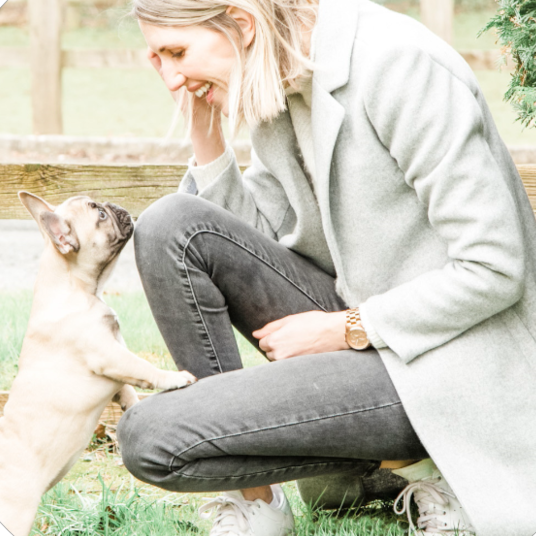Socialisation has become a bit of a buzz word over the last few years - you'd be hard-pushed to find a puppy owner who hasn't heard about the importance of socialising their new pup.
Your dog-owning friends, your breeder, your trainer, your vet (and the good old internet, of course!) will all tell you how essential it is to socialise your puppy well before the end of the ‘sensitive period’ at around 14 weeks of age (but also continue after that!). You’re told that if you follow the advice of getting your puppy to meet lots of other dogs and people, you’ll end up with a confident, well-balanced dog. Sounds good, doesn’t it?
If only it was that simple! Yes, there is good evidence that getting your puppy used to things they will encounter in their daily lives (known as ‘habituation’) and helping them learn how to behave appropriately with others – generally dogs and people - (known as ‘socialisation’), can help to prevent the development of certain behavioural problems and it is, without doubt, a really important part of responsible puppy ownership. However, it's almost as if the true message of 'socialisation' has been lost somewhere along the line. What may have started off as very sound advice has somehow been distorted to the point that what many people are doing with their puppies in the name of 'socialisation' (and habituation) is now more likely causing a whole raft of behaviour problem in dogs, rather than preventing them.
MYTH #1
You should just socialise your puppy at group puppy classes/ puppy parties/ day care
If these sorts of interactions are not carefully handled by a skilled and competent professional (remember: anyone can call themselves a ‘dog trainer’ or offer day care!) it risks becoming a free-for-all where puppies are left to practise whatever behaviours they like, while their owners are instructed to ‘leave them to it’ and are reassured that they must learn to ‘sort things out for themselves’. Well, there’s a whole lot of evidence that this is simply not good advice.
As well as being unhelpful preparation for normal dog-to-dog interactions (which is surely the whole point of socialisation!), at these poorly managed free-for-alls there’s nearly always at least one puppy in the group that’s certainly not having the time of their life! They try to get away but the other puppies chase them. They ask their owners for help but are told off for jumping up or the instructor tells the owners to ignore their puppy. They try to hide but there’s no where safe to go. They might even try to play but it’s all just a bit much - they’re overwhelmed and bombarded. Honestly, it makes me want to cry. What are they learning? Probably that other dogs are pretty intimidating and no-one listens to their requests for it all to stop: neither the other pups or their owners.
Puppy parties can certainly play one small part in the process of proper socialisation, if managed carefully… it's just that ‘puppy play’ does not equal socialisation.
MYTH #2
You should introduce your puppy to as many people and dogs as possible
Yes, you should make the most of the sensitive period of development to allow your puppy to meet different people and dogs, so that they learn how to interact appropriately with them and don’t become overly fearful of new people and dogs when they come across them.
However, we can become so fixated on this that we forget to consider how the puppy is feeling about these interactions. Is it a positive experience from the puppy’s point of view? How do you know? Did they have a choice about whether to approach or interact with that person/ dog? Were they ‘listened to’ so that they could communicate what they were/ weren’t comfortable with? Were they free to move around (and move away) throughout? Did they have a choice to opt out/ end the interaction when they wanted to? Have they had enough rest and time to relax or is life one long string of new experiences that they’re expected to cope with?
So, if you have a young puppy - or can share this with someone who does - please take a moment to re-think what is meant by 'socialisation' with the above in mind so that you can ensure that all your efforts are actually helping to create the dog that you want to live with for the next 15 years.
Written by : Gretta Ford at The Pitter Patter of Tiny Paws




0 comments